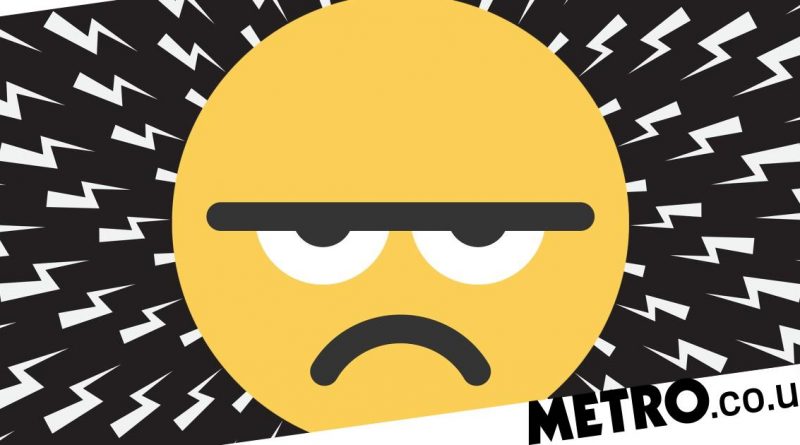What does your 'natural level of grumpiness' reveal about you?

Have you had the soul of a grumpy old man from the moment you entered the world?
Do you absolutely love to have a moan?
Do you give Oscar the Grouch a run for his money?
All of us will sometimes have the tendency to look for the negative rather than celebrating the positive, but there are some people who just seem to be designed to be super grumpy.
This, says Grant J Ryan, the author of Comparonomics: Why Life Is Better Than You Think, is down to your NLG – natural level of grumpiness.
We all have an NLG, but some people’s will be higher than others. You can see this in how often you complain and what about.
‘Try to observe when you grump and what you grump about, and do the same for people you interact with,’ Grant recommends. ‘How often did you start the grumping?
‘Most people are completely unaware how much they grump about things.
‘Some people may be hard-wired to be grumpier than others but I think a lot of it is habit, who you hang out with, and what you choose to talk about.’
The good news is that if your NLG is built out of habit, you can change it. But how?
Remember that there’s a social benefit for complaining
‘It is weirdly anti-social not to grumble about how useless things are – there is a social preference for having a bit of a grumble,’ notes Grant.
‘When told about a horrific customer service story, we find it hard not to chip in with our own account of incompetence and an unbelievably lousy service.’
Complaining is often how we bond – but do it too much, and this can be bad for you.
Keep an eye on your conversations with other people. Do you start the negative chat, or do you feel like you have to chip in? What if you just listened, or offered up a positive experience?
Consider that when we’re in better setups, we tend to grumble more
Having a lot to complain about doesn’t mean your life is rubbish. In fact, it can often mean the exact opposite.
‘There is an old saying that when you are hungry you have one problem,’ says Grant. ‘When you have food, you have lots of problems. We are usually grumbling about high-quality problems.
‘You can gauge how well folks are doing by what they grumble about.
‘While the Covid pandemic raged in the rest of the world, the little town in New Zealand where I live, that had yet to have a single case, was getting grumpy about the pros and cons of putting fairy lights on historic buildings.’

Get some perspective
It’s tempting to moan about the state of the world, but how much is what you’re complaining about actually affecting your life?
Grant gives an example: ‘Yes, politicians an be embarrassing and bad but think of everything you did last week… how much impact on you did they really have?’
Turn grumbling into action
And in that example of moaning about politicians, Grant asks: ‘If they are that bad, have you joined a movement to get them replaced them with someone better?’
Get comparing
Comparison is the thief of joy… sometimes. Other times, it can be a handy reality check to your complaining.
Grant recommends comparing your problems today to those of the past, to get a healthy dose of perspective on just how good we have it.
Let’s say you’re moaning about the cost of a good phone. Grant notes: ‘You can buy a second-hand one, that is three to four years old, for virtually nothing. This is a phone that is so good that five years ago a billionaire could not buy it.’
Or you’re bummed that you can’t get Joni Mitchell or Neil Young on Spotify anymore – ‘You have easy access to more music than the richest music lovers in the world had 10 years ago.’
Yes, Covid has been awful, but, Grant says: ‘there has never been a better time to have an infectious disease given the speed of vaccines, treatments, and DNA analysis of variations.’
He adds: ‘A good question to ask is “would my parents have had this problem?”‘
Remind yourself of all the positive stuff you take for granted
‘I still like a good grump sometimes, because it is fun to tell the story of getting a letter from the council telling me to remove noxious weeds that constantly come from neighbouring property… that is owned by the council,’ Grant tells us.
‘But, I don’t go into a spiral of doom – I know the tap will give me clean drinkable water, my toilet will flush, rubbish will be taken away and the traffic lights and roads will work to let me get around the place.’
Comparonomics: Why Life Is Better Than You Think, And How To Make It Even Better, by Grant J Ryan, is due to be published by Big Idea Publishing in February 2022.
Do you have a story to share?
Get in touch by emailing [email protected].
Source: Read Full Article



